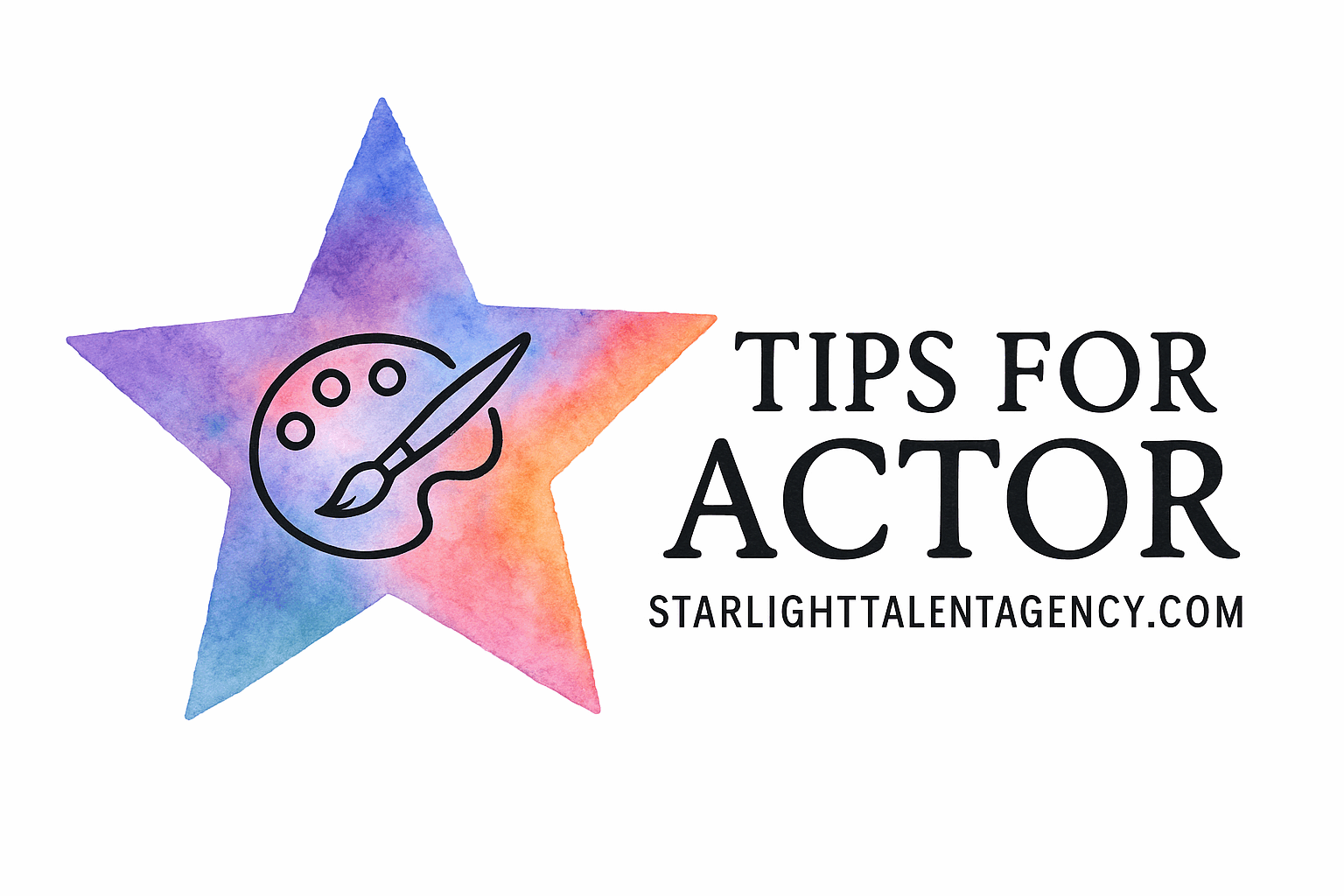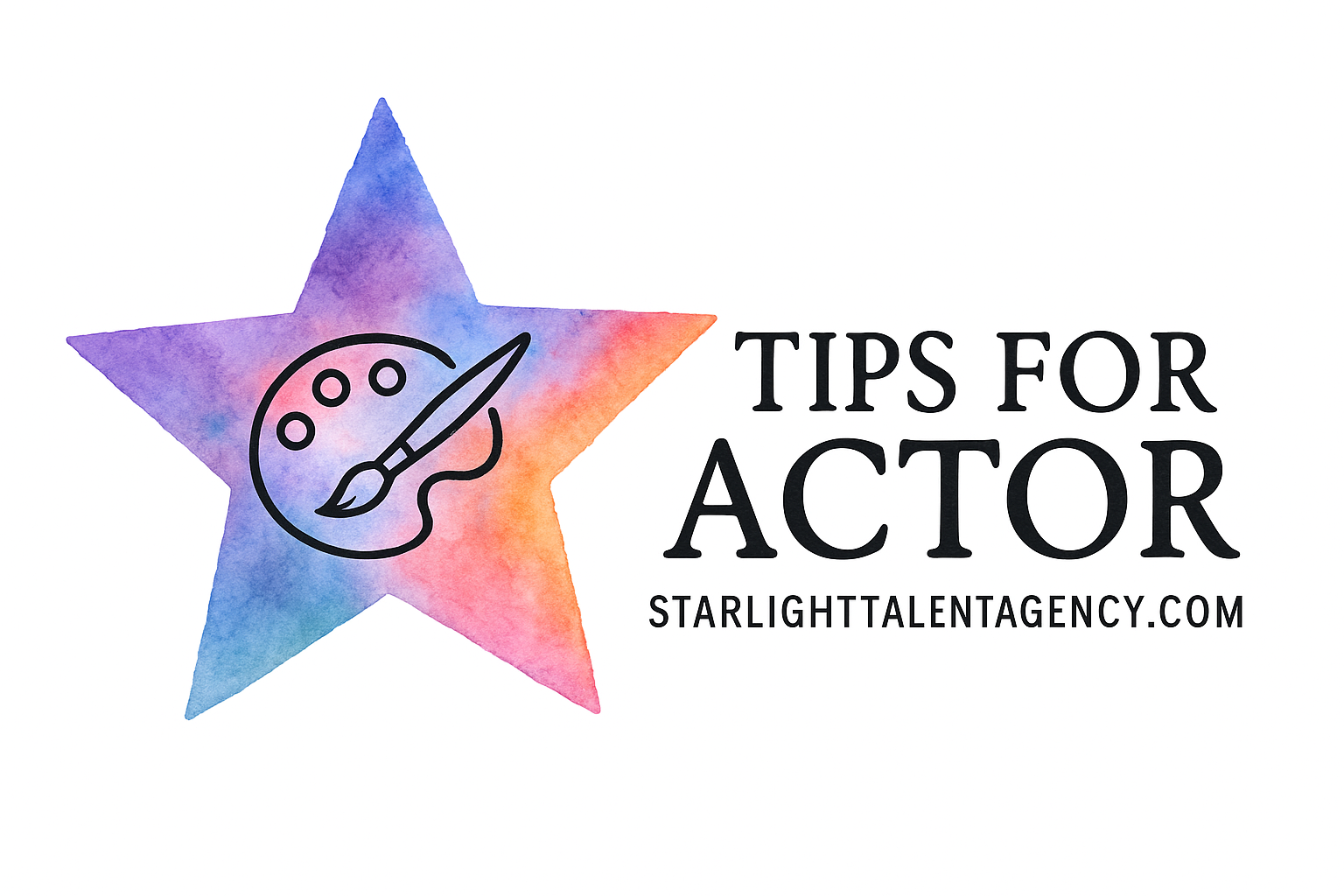Introduction: Why Role Research Defines Great Acting
Ever watched an actor completely vanish into a role and thought, “How did they do that?” The secret lies in one thing: role research. Whether you’re prepping for a self-tape audition or a live stage performance, understanding your character deeply is what separates a good actor from a great one.
According to insights from Starlight Talent Agency, mastering character development is the key to consistency and emotional truth. Great performances come from understanding — not guessing — who your character really is.
Let’s dive into 12 powerful coaching tips for actor researching a role, each designed to elevate your craft and unlock your full acting potential.
Understanding the Purpose Behind Role Research
Building Authentic Characters Through Preparation
Acting isn’t about faking emotions — it’s about channeling them. Preparation gives you the tools to do that authentically. The more you know about your character’s history, desires, and fears, the more real your performance becomes.
For professional guidance, check out Character Development Techniques for structured exercises to build complex, believable personas.
The Emotional Connection Between Actor and Role
An actor’s emotional link to their character is the heartbeat of every performance. By connecting emotionally, you humanize your role — giving your audience someone to empathize with. If you’re looking to strengthen your emotional expression, Starlight’s advice on Expressive Acting is an invaluable resource.

Coaching Tip #1: Start with a Deep Script Analysis
Before you embody a role, you must understand the story. Every line, pause, and reaction has meaning.
Reading Between the Lines of the Script
Read the script multiple times. The first time, focus on the overall story; the second, study your character’s scenes; and the third, explore subtle shifts in tone or relationships.
For deeper breakdown strategies, see Script Analysis for Actors.
Identifying Objectives, Obstacles, and Motivations
Ask yourself:
- What does my character want?
- What stands in their way?
- Why are they fighting for it?
This triad of objective–obstacle–motivation forms your character’s internal compass — the “why” behind every choice.
Coaching Tip #2: Research the Story’s Context
A character’s world defines their behavior. You can’t truly act without understanding where and when your character lives.
Exploring the Time Period, Culture, and Setting
If the story is historical, research its era’s customs, social structure, and politics. For a modern role, study local dialects, social media behavior, or current issues.
The Audition Preparation Basics guide explains how contextual understanding enhances character authenticity — even during auditions.
Coaching Tip #3: Develop a Detailed Character Biography
Using Character Backstories to Strengthen Performance
What shaped your character before page one of the script? Write a personal biography from their perspective: childhood experiences, relationships, fears, dreams.
This exercise builds emotional continuity — your reactions start feeling spontaneous instead of staged. Dive deeper into Acting Prep resources to refine your pre-performance process.
Coaching Tip #4: Observe Real-Life Inspirations
Finding Real People Who Mirror the Character
Observation is your most powerful research tool. Study people around you who share your character’s traits or circumstances. Watch interviews or documentaries to pick up unique gestures or emotional cues.
For instance, a detective role could benefit from studying real investigators — their calm focus, body language, and subtle speech rhythms.
Actors exploring realism can learn from Starlight’s advice on Body Acting and Role Physicality.
Coaching Tip #5: Understand the Character’s Relationships
Mapping Emotional Connections in the Script
Your character’s relationships define their emotions and decisions. Create a “relationship map” to track dynamics with others: who they trust, love, resent, or fear.
If you’re acting with partners, see Acting with Partners to learn how to create chemistry and react naturally in scenes.
Coaching Tip #6: Master Body Language and Physicality
Aligning Movement with Character Personality
Your character’s posture, walk, and gestures often speak louder than words. Physicality must match the character’s inner life — a timid person moves differently from a confident one.
Explore Stage Gestures and Physical Acting to master how movement can amplify emotional truth.
Coaching Tip #7: Explore Dialects and Voice Patterns
How Speech Reflects Identity and Background
Voice reveals personality. Study your character’s accent, tone, and rhythm — it’s an expression of where they come from and who they are.
For guidance, visit Dialect Training Resources and On-Camera Acting Voice Tips to refine your vocal control and adaptability.
Coaching Tip #8: Use Method Acting Techniques Wisely
Immersion vs. Over-Identification
Method acting can deepen emotional realism — but don’t lose yourself entirely. Use it as a tool, not a lifestyle. Stay grounded by practicing Warm-Up Exercises before and after scenes to transition safely in and out of character.
Coaching Tip #9: Collaborate with Directors and Coaches
Accepting Feedback and Direction Gracefully
Great actors are great listeners. Be open to direction — collaboration builds stronger performances.
Explore Coaching Tips for Actors for more insights on how to grow through constructive feedback and teamwork.
Coaching Tip #10: Experiment During Rehearsals
Finding What Feels Authentic Through Play
Rehearsals are creative laboratories. Try new movements, emotions, and line deliveries. What feels authentic often surprises you.
For examples of improvisation and scene work, read Starlight’s guide on Scene Work for Actors.
Coaching Tip #11: Maintain a Research Journal
Documenting Discoveries and Emotional Insights
A research journal becomes your creative roadmap. Write notes about your discoveries, emotional triggers, and choices that work best.
This practice enhances memory and focus — crucial for self-tape submissions. Learn how to prepare top-notch auditions at Self-Tape Mastery.
Coaching Tip #12: Reflect and Refine Before Performance
The Power of Self-Evaluation and Adjustments
Reflection turns experience into growth. After rehearsals, evaluate what worked and what didn’t. Record yourself to assess voice, expression, and timing.
The Career Growth section at Starlight offers strategies for continuous performance improvement.
Common Mistakes Actors Make When Researching a Role
- Skipping context research: Understanding the setting is key.
- Over-rehearsing: Leave room for spontaneity.
- Copying another actor’s style: Authenticity is your biggest strength.
- Neglecting emotional depth: Memorizing lines isn’t enough — feel them.
For related insights, visit Acting Confidence and Mindset Tips.
How Role Research Boosts Acting Confidence
Confidence comes from preparation. When you understand your character inside-out, nerves fade. You’re no longer “performing” — you’re simply existing as the character.
Explore Starlight’s Career Mindset articles to learn how mental discipline and preparation foster professional confidence.
Conclusion
Researching a role isn’t just about learning lines — it’s about transforming understanding into art. By following these 12 coaching tips for actor researching a role, you’ll create characters that breathe, feel, and connect with your audience.
Acting is empathy in motion. When you commit to the research, your performances become more than believable — they become unforgettable.
FAQs
1. Why is role research essential for actors?
It provides emotional and contextual depth, ensuring every performance feels real and consistent.
2. How can I research effectively for modern roles?
Study contemporary culture, observe real people, and analyze motivations behind their behavior.
3. What is the first step in role research?
Always begin with script analysis to understand your character’s journey.
4. How do I stay balanced when using method acting?
Use warm-up exercises to mentally separate yourself from the role.
5. What’s the benefit of keeping an acting journal?
It helps track emotional triggers and refine your approach throughout rehearsals.
6. How can feedback improve my performance?
Regular coaching, like that offered in coaching tips for actor, helps identify blind spots and elevate your skills.
7. How does role research influence auditions?
It allows you to make authentic, confident choices that stand out in casting sessions — learn more in Advanced Audition Skills.

